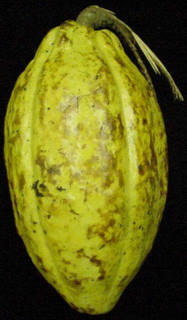
Biodiversity is under considerable threat, largely as a consequence of human activities, to the extent that some scientists consider us to be in the ‘6th extinction’. In response, Target 8 of the Global Strategy for Plant Conservation of the Convention on Biodiversity (CBD) recommends that 60% of threatened plant species should be available in ex situ collections by 2010. The most cost-effective way of conserving plant genetic resources is as seed collections in seed banks, where the seeds are stored in the dry state, at low temperature and relative humidity (RH). Seeds that can be stored under these conditions are referred to as ‘orthodox’, and under the correct conditions can be stored for decades, possibly centuries. However, seeds of a significant number of species cannot be stored in this manner, and alternative storage methods need to be developed.
In the interests of setting the scene for this, a little background is provided. We work with plant species producing non-orthodox seeds, and especially with those that are described as recalcitrant.
Orthodox seeds with which one is familiar (e.g. those of common crops), share the property of becoming very dehydrated in the final stages of development (maturation drying), and are hence shed or harvested at water concentrations in equilibrium with the ambient RH of the environment. At shedding, seed water concentrations are generally in the region of 0.10 - 0.15 grams water per gram dry matter (g/g). Orthodox seeds can then be further dried - generally to around 0.05 g/g, and in this state will retain vigour and viability for long periods (decades, or possibly more) if stored under appropriate low-temperature, low RH conditions. Orthodox seed behaviour is the outcome of the acquisition of desiccation tolerance and the ability to survive long-term 'suspended animation' in the desiccated state. Desiccation tolerance is the result of the interplay of a complex suite of genetically-determined mechanisms and processes expressed during seed development.
The development of recalcitrant seeds does not include the maturation drying phase, and there is a lack or incomplete expression of this suite of mechanisms and processes. As a consequence, recalcitrant seeds remain desiccation-sensitive throughout development and after harvest or natural shedding, and cannot tolerate much water loss (the proportion of which varies with the species) without seriously injurious or lethal consequences. Recalcitrant seeds are shed at water concentrations generally above 0.4, and as high as 4.0 g/g dm. As a consequence of their desiccation-sensitivity, no recalcitrant seeds can be stored under the low temperature and low RH conditions used for orthodox types. Additionally, recalcitrant seeds have extremely curtailed life spans even in the fully hydrated condition: storage life spans vary among species and storage conditions and range from a week or two for the most recalcitrant types, to a few months at best.
In between the extremes of orthodoxy and recalcitrance, is a spectrum of species producing seeds that will tolerate considerable drying (but not as much as will orthodox types), but are short-lived in the dehydrated state. To complicate the issue, low temperatures are often lethal to many of these types, and to many truly recalcitrant seeds.
The list of plants producing non-orthodox seeds is ever-lengthening as seeds of hitherto unexamined species are investigated, and this is especially true for those of tropical and sub-tropical provenance. Species so-characterised include economically-important tropical crops such as litchi, mango and cocoa, a broad spectrum of horticultural and many muthi (traditional medicinal) plants, as well as forest trees.
As a consequence of their post-harvest behaviour, it is impossible to store planting material from season to season - and significantly, the genetic resources of the species concerned cannot be conserved by storing seeds.